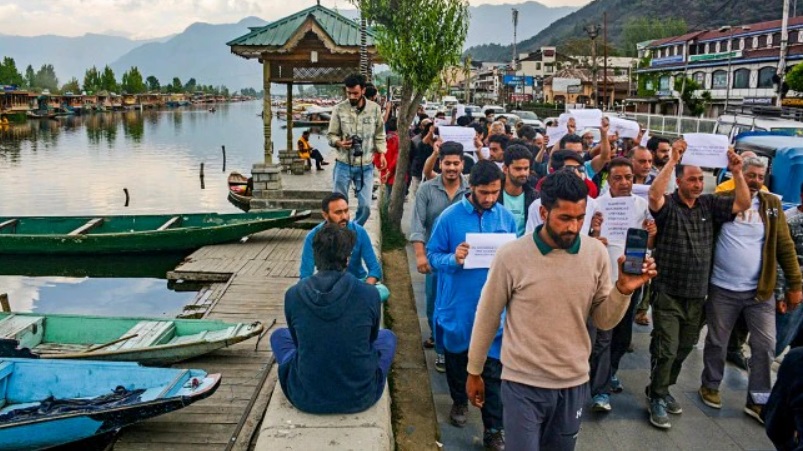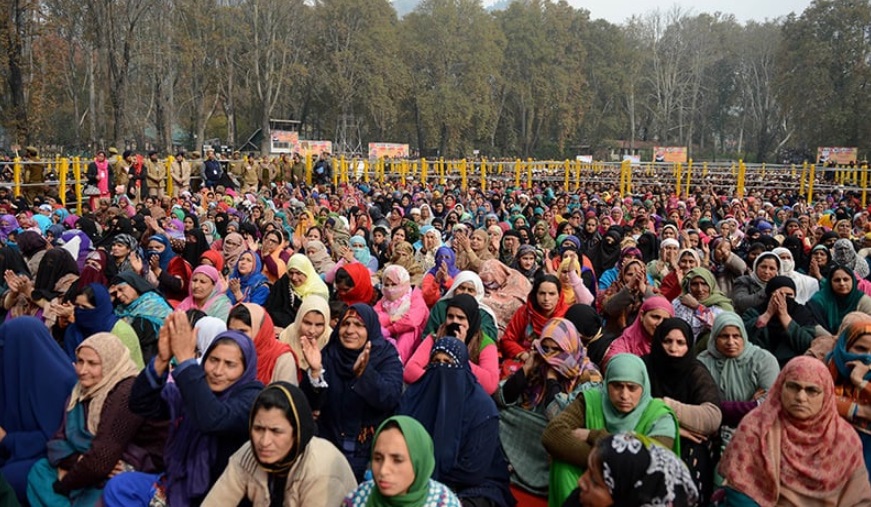
Solidarity Shouldn’t Shield Governments from Accountability
Standing with the nation means questioning power, demanding better and unfiltered information, and refusing to be silent in the face of injustice
A nation must remain united in times of national grief and tragedy. Such concord offers collective strength, especially in the face of tragedy, such as natural disasters, terrorist attacks, war or war-like situations. Periods of grief are also vulnerable times when social and political divisions can deepen. Staying united helps guard against those who might exploit tragedy to push divisive agendas or misinformation, as was the obvious intent of the terrorists at Pahalgam. Thus, the national grief was much beyond a matter of national pride or ritual. When people came together to grieve and remember, it created space for shared mourning and recovery. It became a cornerstone of resilience, humanity, and India’s strength. It also has an element of sacredness to it, and I am proud of my fellow citizens who embodied this.
Responding to tragedy with a united front and speaking in a non-partisan voice reinforces a sense of national identity and common values like compassion, empathy, and justice. It reminds citizens of what binds them together, beyond political or cultural differences. However, given the polarised times we live in, it is also not unusual to see such moments being instrumentalised cynically for political capital. We must not allow this to happen. Our sense of grief and anger is not cheap, and it cannot be taken for granted.
Leaders urge citizens and allies to “stand with the nation.” But too often, this rallying cry is used to demand uncritical support for the government’s actions. To conflate patriotism or solidarity with blind support for those in power is to fundamentally betray the democratic spirit that gives nations their true strength. The use of this moment as an opportunity to consolidate domestic power reveals a leadership that has fundamentally misunderstood the nature of national strength. We must be mindful of the fact that history is replete with examples where governments have claimed to speak for the nation while systematically silencing large segments of their population.
True solidarity emerges not from the suppression of diverse voices but from their harmonious integration into a shared national purpose that transcends narrow partisan calculation. Usually, such processes play out in public spaces and the media. Regretfully, these spaces have been surveilled and controlled so much that they have lost their strength. There is a long list of citizens of conscience who have been punished for advocating peace and non-violent protests — students, research scholars, academics, journalists, activists, opposition politicians — who have been banished to jail without bail, primarily to send a chilling message to civil society. On the other hand, people aligned with the ruling party or their allies seem to get away with just about anything, be it vicious online trolling, hate speech, incitement to violence, and even insulting our defence forces.
Solidarity with the nation means standing with fellow citizens in their struggles, their rights, and their dignity. True solidarity lies not in silence or complicity but in holding power accountable. In such moments, those who dare to speak out become the authentic voice of the people. Supporting them is not betrayal; it is the highest form of loyalty to the values a nation claims to uphold, and in the case of India, these features are the hallmark of our civilizational trajectory.

India is a diverse democracy, home to over 1.4 billion people, speaking hundreds of languages, practising numerous faiths, and holding a spectrum of political beliefs. The government is but one institution among many, and it does not, by itself, embody the full spirit or will of the nation. Hence, to equate dissent with disloyalty is to fundamentally misunderstand the very foundation of the Indian republic. India’s freedom struggle was built on dissent against colonial power. India did not become a pawn in the Cold War. It charted its own path. Women’s movements, ecological movements, anti-caste movements, movements for communal harmony challenged the status quo and made our country kinder and stronger. This incredible legacy cannot be upheld by silencing critics or labelling journalists, activists, and members of the political opposition as “anti-national.”
Supporting those who speak out against inequality, discrimination, or state overreach is a form of engaged citizenship that should be celebrated, not criminalised. I urge the Centre and all state governments that true solidarity with India means listening to its people, especially the marginalised, the voiceless, the excluded. It means understanding that the government’s word is not the only, or even the final, word on what it means to be Indian.
The cynical deployment of “anti-national” accusations has become the refuge of those who mistake governance for performance art. This pernicious trend has not merely corrupted public discourse but has infected the very institutions meant to serve as bulwarks against authoritarian overreach. When our courts, the guardians of constitutional values, tend to tune their comments and judgments to particular agendas rather than stand firm on legal precedent, we witness the hollowing out of democratic architecture from within. A democracy cannot be so fragile that it cannot withstand even the gentlest breeze of questioning without collapsing into manufactured hysteria.
Most concerning, perhaps, is the persistence of an already inflamed mentality, even from positions of overwhelming electoral dominance and institutional control. When power is exercised with neither confidence nor compassion but with the paranoid defensiveness of the perpetually embattled to cultivate and provoke its political supporters, it suggests a disconnection from the democratic responsibility to serve all citizens. That after a decade of dominance, the government still sees conspiracy in every corner of dissent shows its failure to exercise democratic authority responsibly, a core demand of our constitutional framework.
The mantra for all of us should be to speak loudly, again and again, that to stand with India is to stand with its people, to stand with its rich composite culture and history. And that means questioning power, demanding better and unfiltered information, and refusing to be silent in the face of injustice. This is precisely how nations grow stronger, more inclusive, and more just. Hence, national unity achieved in any grief should not be used as a shield to insulate the government from some critical questions.


